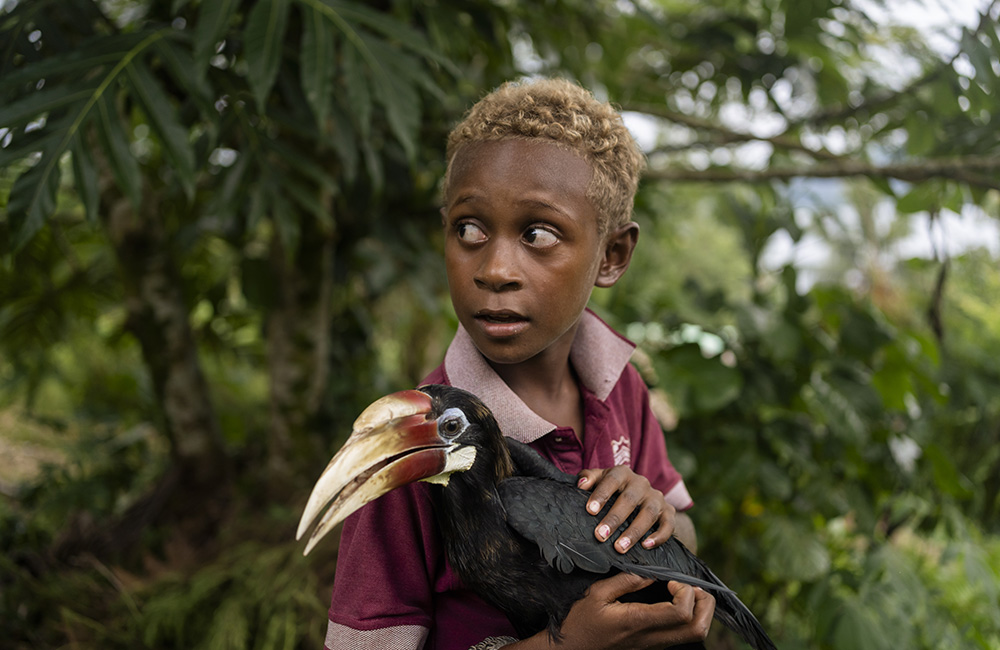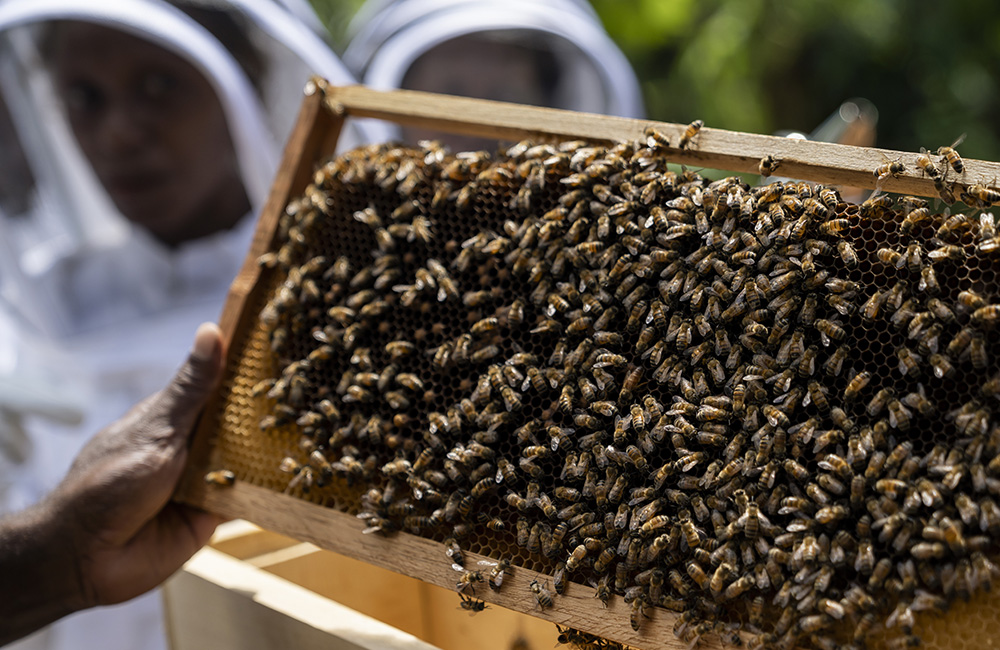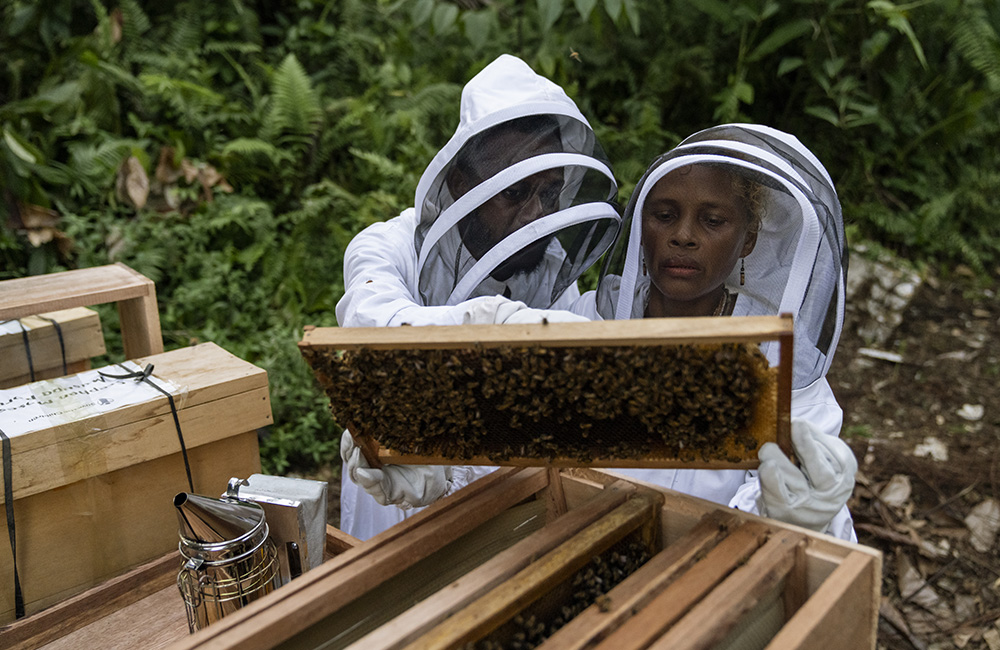
Alison wants her children, including eight-year-old Justus, to be safe from rising sea levels, variable rainfall,
and increasingly frequent, more severe disasters.
The web of life
Save the Children is working hand in hand with communities to take on climate change through connections of our own. We’re working with local NGO, Mai Ma’asina Green Belt, to help communities restore protective ecosystems and help families diversify their income so they don’t have to cut down mangroves.
That’s why Alison is part of a group of women and young people training to keep bees. Our team carefully transports beehives from bustling Honiara to far-flung island communities. There, trainees are given protective suits and shown how to manage the bees, using smokers to calm them so honey can be harvested safely.
The bees love the mangroves that flank coastal communities like Alison’s. They provide a perfect haven. In turn, the bees pollinate the mangroves, helping them grow.
The mangroves then protect the islands – along with wildlife and food sources like fish and crabs - from storms and high tides. They even store carbon deposits that don’t make their way into the atmosphere, helping slow climate change globally.

Bees find a haven in coastal mangroves, helping pollinate their flowers so the trees can reproduce.
And all the while, the bees produce sweet honey for community farmers to sell. “With honeybee training I know if I do it well, I am able to earn money for my family,” says Alison.
Small bees, big impact
Alison had never seen bees before she attended the training and was wary of them initially. “We received training on honeybees, the first time I saw honeybees coming out of the box, I was very frightened. I wanted to run away,” she remembers.
Beekeeper Noah reassures his trainees. “Once you work with bees you will love them, then they will love you, too,” he says. With his guidance, Alison and the other trainees quickly warmed to the tiny, buzzing creatures.
“After the session today I feel free, no longer afraid. I want to be closer and am starting to like them,” Alison says, adding that she’s keen to harvest her first batch of honey.

Beekeeper, Noah, shows Alison a frame from her community’s brand-new beehive.
“For 1 kilo it is $200, and I can produce up to $4,000, so I am like, 'wow.'” With the money she earns, Alison can pay for her children’s school fees, giving them opportunities to thrive. She can make sure they’re well fed too – even when future heavy rain and periods of drought inevitably affect her garden.
From little things, big things grow
Alison is filled with hope and confidence. “It is the first time for me to wear garments and uniforms like these. When I am in this uniform, I feel like I am of significance,” she says.